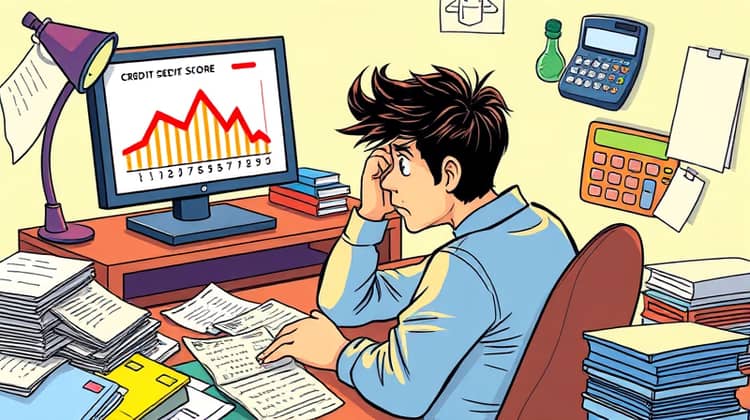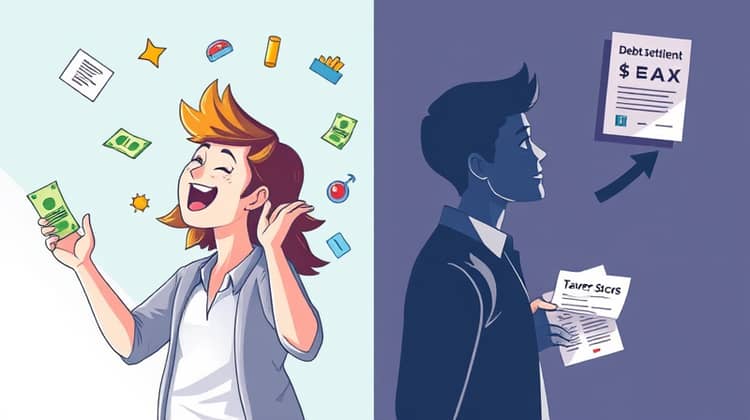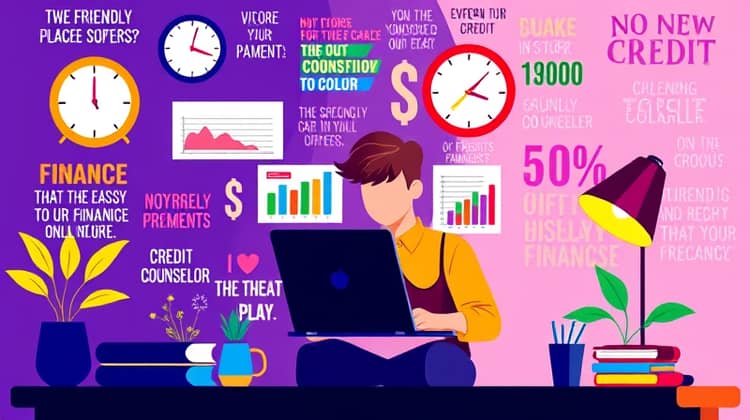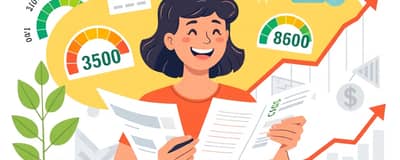Debt Settlement and Your Credit: What You Need to Know

Debt can be a heavy burden for many people, leading to stress and financial instability. As debts accumulate, individuals often seek ways to manage or eliminate them effectively. One potential route for those struggling with financial obligations is debt settlement, a process that may provide relief by reducing the total amount owed. However, it's essential to understand how it can impact your credit score and overall financial health before opting for this solution. In this article, we will explore what debt settlement is, how it works, its effects on your credit, the pros and cons, alternatives to this approach, negotiation strategies, and tips for protecting your credit during the process.
What is Debt Settlement?

Debt settlement is a negotiation process between a debtor and a creditor to reduce the overall amount owed on a debt. Instead of making regular payments until the debt is fully paid off, the debtor offers a lump sum payment that is less than the total amount owed. If both parties reach an agreement, the creditor accepts the reduced amount, and the remaining balance is forgiven, which can provide significant financial relief for the debtor.
This approach can be particularly appealing for those facing financial hardships and unable to keep up with their monthly payments. However, debt settlement isn’t the right solution for everyone. It typically involves a longer process and may require a significant upfront payment, which could be challenging for individuals already in financial distress.
Before pursuing debt settlement, it's crucial to consider how this option aligns with your long-term financial goals and what alternative solutions may exist. Consulting with a financial advisor or a debt counselor can help you better understand your circumstances and the potential consequences of entering into a debt settlement agreement.
How Debt Settlement Works

The debt settlement process typically begins when the debtor contacts a debt settlement company or negotiates directly with creditors. The debtor must explain their financial situation and express a willingness to pay a reduced amount to settle the debt. Negotiation skills are critical in this stage, as creditors will assess the debtor's financial circumstances before making a counteroffer.
Generally, the settlement timeline can vary depending on the amount of debt, the willingness of creditors to negotiate, and the debtor's financial situation. After reaching an agreement, the debtor is usually required to provide a lump sum payment, which can be derived from savings or borrowed funds. It's important to note that settlements can take time, sometimes extending over several months or even years. However, once settled, both parties will have a documented agreement to confirm the debt was resolved.
- Contact your creditors or a debt settlement company to initiate the negotiation process.
- Provide detailed information about your financial circumstances to show your inability to pay the full debt amount.
- Negotiate the settlement terms, focusing on achieving a reasonable reduction in the total debt owed.
Always strive for a written confirmation of the debt settlement agreement before making any payments, as this documentation is essential for protecting yourself.
The Impact on Your Credit

Understanding the impact of debt settlement on your credit score is crucial for anyone considering this option. Unlike declaring bankruptcy, which can severely damage your credit, debt settlement may not have as adverse an effect. However, it is important to recognize that the process will still negatively influence your credit report.
When a debt is settled for less than the full amount owed, this information is typically reported to credit bureaus. The settled account will appear as 'settled' on your credit report, which can indicate to future lenders that you didn't meet your original payment obligations, potentially making it harder to obtain future credit.
- Debt settlement typically lowers your credit score, which may affect your ability to qualify for loans in the future.
- A settled debt appears on your credit report, indicating that you negotiated a lower amount than originally owed.
- The negative impact on your credit score may remain for several years, depending on the extent of your overall credit history.
It is vital to maintain other aspects of your credit, such as on-time payments for your remaining debts, while navigating the debt settlement process.
Pros and Cons of Debt Settlement

Debt settlement can be advantageous for individuals struggling with an overwhelming debt load. By negotiating lower payments, debtors can experience immediate financial relief, which may help them regain control of their finances. It's often quicker than alternative methods, such as bankruptcy, and allows individuals to avoid the lengthy legal process associated with that route.
However, debt settlement also comes with significant disadvantages. For one, the negative impact on one's credit score can make it difficult to secure new loans or credit lines in the future. Additionally, there may be tax consequences if the forgiven debt is considered income by the IRS, which could further complicate an already challenging financial situation.
Debtors should balance the pros and cons carefully. While immediate relief is often appealing, the long-term implications on credit must also be considered. Thorough research and consultation with professionals are imperative before making a decision.
- Debt settlement can provide financial relief by reducing the total debt amount owed.
- It can prevent the extreme measure of declaring bankruptcy and its associated legal repercussions.
- Successful negotiations can lead to quicker closure on debts compared to other methods of debt management.
In summary, debt settlement is a double-edged sword that requires careful consideration of both potential benefits and drawbacks.
Alternatives to Debt Settlement

If debt settlement doesn’t seem like the ideal approach, several alternatives exist that can help debtors manage their obligations more effectively. Depending on the individual’s financial situation, choosing an alternative route can help maintain credit integrity while working toward debt freedom.
- Debt management programs through nonprofit credit counseling agencies.
- Debt consolidation loans to combine multiple debts into one with a lower interest rate.
- Filing for bankruptcy may sometimes offer a more straightforward way to deal with unmanageable debt.
Exploring these options with a financial professional can lead to a more informed decision about how to best handle outstanding debts.
How to Negotiate a Debt Settlement

Negotiating a debt settlement can be a daunting process, especially for those unfamiliar with the nuances of financial negotiations. However, by approaching the conversation with preparation and confidence, it's possible to reach a favorable agreement. Before initiating negotiation, it's advisable to gather all relevant information about the debt, including the original amount, current status, and any associated fees or interest rates.
Arming yourself with data about your financial situation and being ready to explain your inability to pay the full debt amount significantly enhances your negotiating position. It's also important to remain patient and maintain flexibility, as negotiations may involve several back-and-forth exchanges between the debtor and the creditor.
- Research your creditor's policies and settle for a range that you can feasibly manage and guarantees a willing buyer.
- Keep communication professional and respectful, as being confrontational can hinder negotiations.
- Be prepared to offer a lump sum payment, as this is typically how settlements are concluded.
Always document the final agreement to protect yourself and ensure clarity on the terms moving forward.
Tips for Protecting Your Credit

While engaging in debt settlement negotiations, protecting your credit is paramount. Even as you work through reducing debt, maintaining positive habits with your remaining credit accounts can help buffer any negative impacts that arise from settling debts.
- Make timely payments on any current outstanding debts to demonstrate responsible credit behavior.
- Avoid opening up new credit accounts while in the settlement process, as this can further influence your credit score negatively.
- Seek guidance from a credit counselor to create a holistic plan for your credit management during and after debt settlement.
Taking these precautions can help to ensure that you safeguard the integrity of your credit profile even while navigating the complex world of debt settlement.






